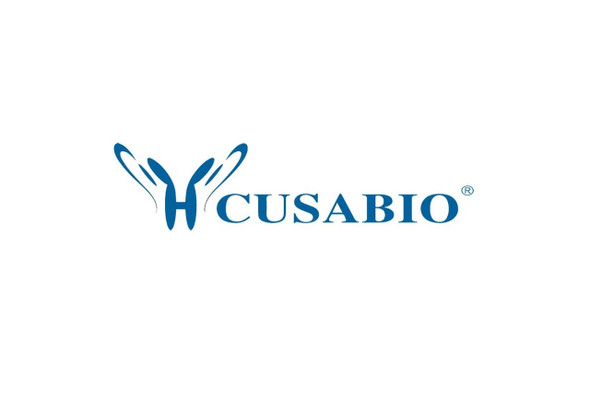Cusabio Human Recombinants
Recombinant Human Tissue factor pathway inhibitor (TFPI), partial | CSB-EP023437HU
- SKU:
- CSB-EP023437HU
- Availability:
- 13 - 23 Working Days
Description
Recombinant Human Tissue factor pathway inhibitor (TFPI), partial | CSB-EP023437HU | Cusabio
Alternative Name(s): Extrinsic pathway inhibitor ;EPILipoprotein-associated coagulation inhibitor ;LACI
Gene Names: TFPI
Research Areas: Cardiovascular
Organism: Homo sapiens (Human)
AA Sequence: DSEEDEEHTIITDTELPPLKLMHSFCAFKADDGPCKAIMKRFFFNIFTRQCEEFIYGGCEGNQNRFESLEECKKMCTRDNANRIIKTTLQQEKPDFCFLEEDPGICRGYITRYFYNNQTKQCERFKYGGCLGNMNNFETLEECKNICEDGPNGFQVDNYGTQLNAVNNSLTPQSTKVPSLFEFHGPSWCLTPADRGLCRANENRFYYNSVIGKCRPFKYSGCGGNENNFTSKQECLRACKKGFIQRISKGGL
Source: E.coli
Tag Info: N-terminal GST-tagged
Expression Region: 29-280aa
Sequence Info: Partial
MW: 55.9 kDa
Purity: Greater than 90% as determined by SDS-PAGE.
Relevance: Inhibits factor X (X(a)) directly and, in a Xa-dependent way, inhibits VIIa/tissue factor activity, presumably by forming a quaternary Xa/LACI/VIIa/TF complex. It possesses an antithrombotic action and also the ability to associate with lipoproteins in plasma.
Reference: Chang J.-Y., Monroe D.M., Roberts H.R.SeattleSNPs variation discovery resourceGeneration and annotation of the DNA sequences of human chromosomes 2 and 4.Hillier L.W., Graves T.A., Fulton R.S., Fulton L.A., Pepin K.H., Minx P., Wagner-McPherson C., Layman D., Wylie K., Sekhon M., Becker M.C., Fewell G.A., Delehaunty K.D., Miner T.L., Nash W.E., Kremitzki C., Oddy L., Du H. , Sun H., Bradshaw-Cordum H., Ali J., Carter J., Cordes M., Harris A., Isak A., van Brunt A., Nguyen C., Du F., Courtney L., Kalicki J., Ozersky P., Abbott S., Armstrong J., Belter E.A., Caruso L., Cedroni M., Cotton M., Davidson T., Desai A., Elliott G., Erb T., Fronick C., Gaige T., Haakenson W., Haglund K., Holmes A., Harkins R., Kim K., Kruchowski S.S., Strong C.M., Grewal N., Goyea E., Hou S., Levy A., Martinka S., Mead K., McLellan M.D., Meyer R., Randall-Maher J., Tomlinson C., Dauphin-Kohlberg S., Kozlowicz-Reilly A., Shah N., Swearengen-Shahid S., Snider J., Strong J.T., Thompson J., Yoakum M., Leonard S., Pearman C., Trani L., Radionenko M., Waligorski J.E., Wang C., Rock S.M., Tin-Wollam A.-M., Maupin R., Latreille P., Wendl M.C., Yang S.-P., Pohl C., Wallis J.W., Spieth J., Bieri T.A., Berkowicz N., Nelson J.O., Osborne J., Ding L., Meyer R., Sabo A., Shotland Y., Sinha P., Wohldmann P.E., Cook L.L., Hickenbotham M.T., Eldred J., Williams D., Jones T.A., She X., Ciccarelli F.D., Izaurralde E., Taylor J., Schmutz J., Myers R.M., Cox D.R., Huang X., McPherson J.D., Mardis E.R., Clifton S.W., Warren W.C., Chinwalla A.T., Eddy S.R., Marra M.A., Ovcharenko I., Furey T.S., Miller W., Eichler E.E., Bork P., Suyama M., Torrents D., Waterston R.H., Wilson R.K.Nature 434:724-731(2005)
Storage: The shelf life is related to many factors, storage state, buffer ingredients, storage temperature and the stability of the protein itself. Generally, the shelf life of liquid form is 6 months at -20?/-80?. The shelf life of lyophilized form is 12 months at -20?/-80?.
Notes: Repeated freezing and thawing is not recommended. Store working aliquots at 4? for up to one week.
Function: Inhibits factor X (X(a)) directly and, in a Xa-dependent way, inhibits VIIa/tissue factor activity, presumably by forming a quaternary Xa/LACI/VIIa/TF complex. It possesses an antithrombotic action and also the ability to associate with lipoproteins in plasma.
Involvement in disease:
Subcellular Location: Isoform Alpha: Secreted, SUBCELLULAR LOCATION: Isoform Beta: Microsome membrane, Lipid-anchor, GPI-anchor
Protein Families:
Tissue Specificity: Mostly in endothelial cells.
Paythway: Complementandcoagulationcascades
Form: Liquid or Lyophilized powder
Buffer: If the delivery form is liquid, the default storage buffer is Tris/PBS-based buffer, 5%-50% glycerol. If the delivery form is lyophilized powder, the buffer before lyophilization is Tris/PBS-based buffer, 6% Trehalose, pH 8.0.
Reconstitution: We recommend that this vial be briefly centrifuged prior to opening to bring the contents to the bottom. Please reconstitute protein in deionized sterile water to a concentration of 0.1-1.0 mg/mL.We recommend to add 5-50% of glycerol (final concentration) and aliquot for long-term storage at -20?/-80?. Our default final concentration of glycerol is 50%. Customers could use it as reference.
Uniprot ID: P10646
HGNC Database Link: HGNC
UniGene Database Link: UniGene
KEGG Database Link: KEGG
STRING Database Link: STRING
OMIM Database Link: OMIM









